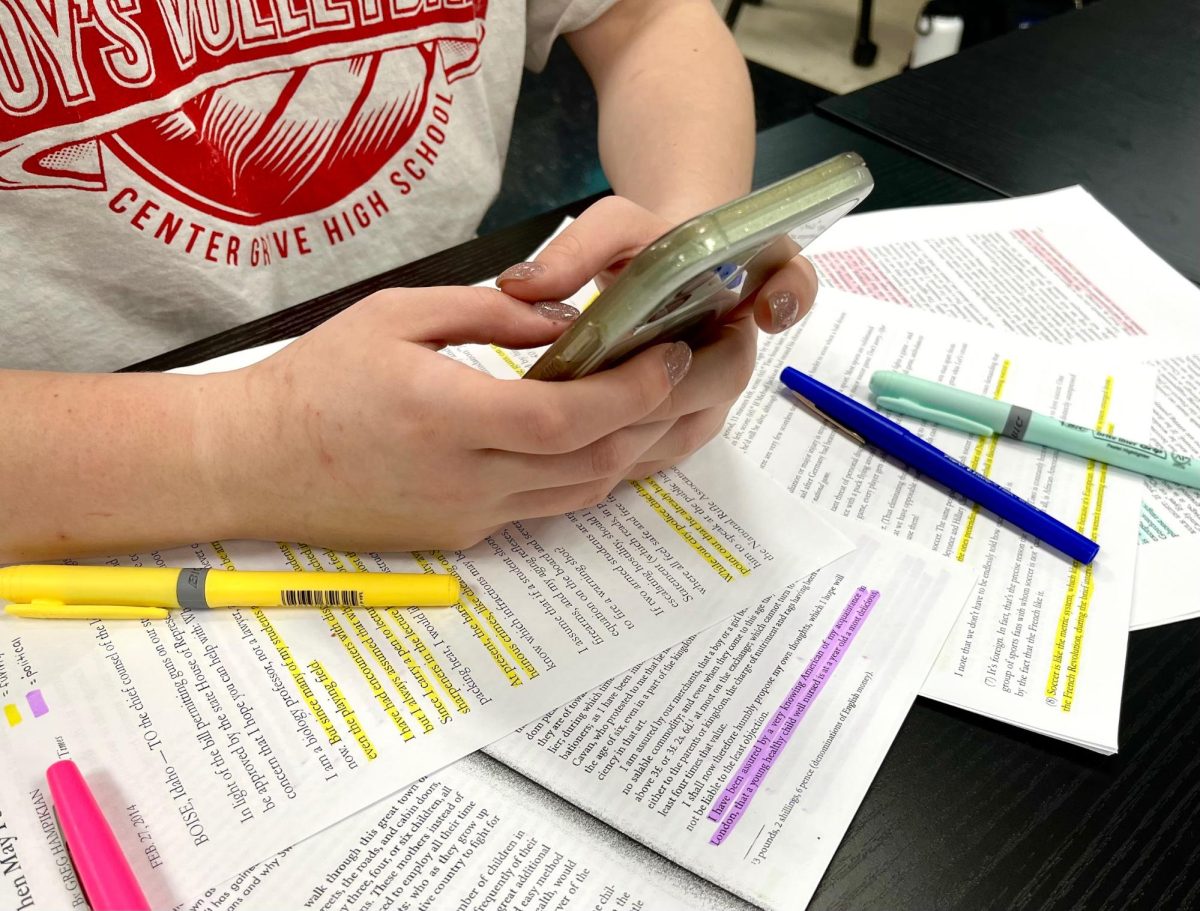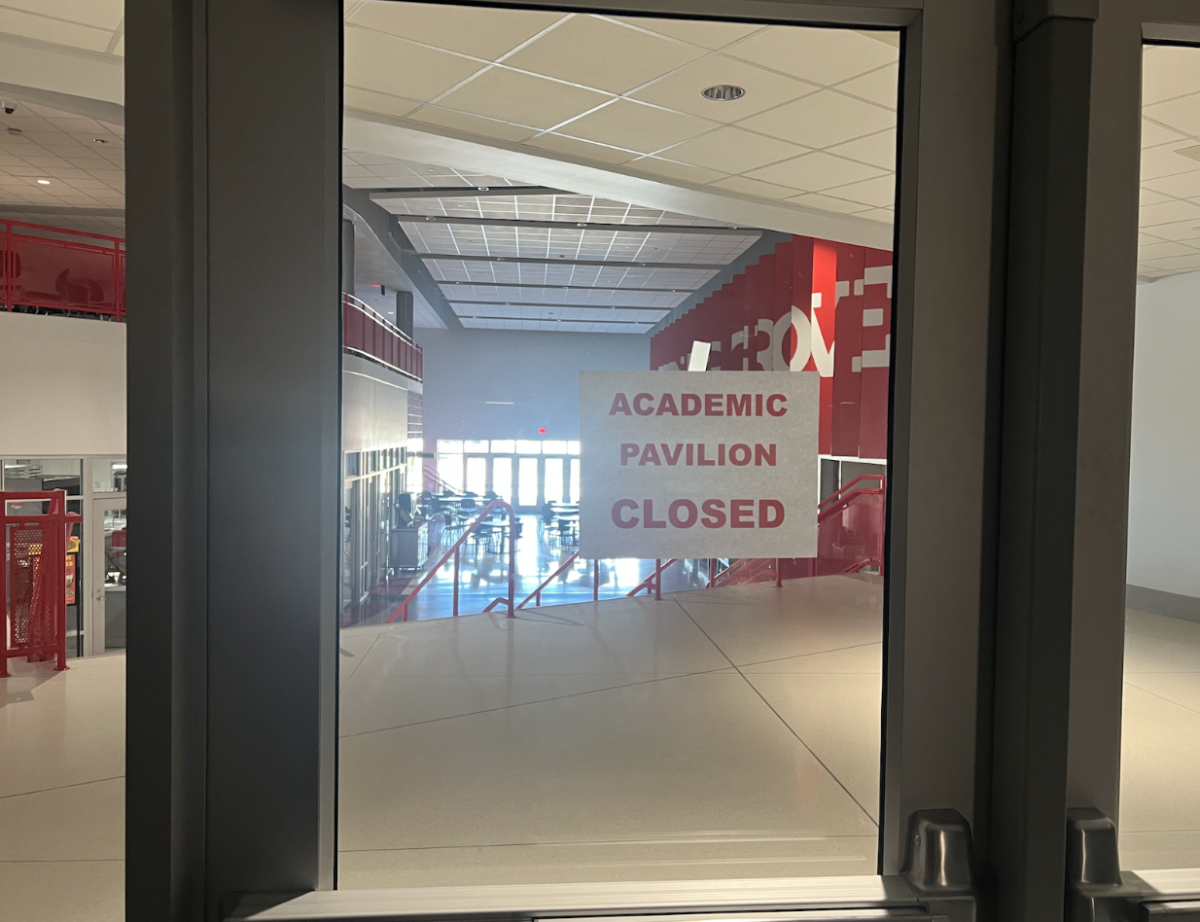While trying to comprehend and copy down the series of complex algebraic equations being put up on the board and simultaneously trying to keep up with the teacher lecturing a thousand miles a minute, a student’s phone buzzes beneath their hand. Instinctively, they pick it up and check it. The student’s brain checks out of algebra and into the outfit they’re going to wear to the party next Saturday.
Instances like this happen in classrooms every day and inspired the bill effective July 2024 that bans wireless devices in Indiana schools during class time. With the generation of students today growing up with phones glued to their hands, this bill will be a major change not only for the teachers who struggle to maintain students’ attentions, but also to students who spend countless hours on their phones each day.
“Students just can’t learn not to look at their phone,” computer science teacher Summer Ehresman said. “They just want to constantly be checking it and checking it and checking it.”
According to a 2023 study by Common Sense Media, half of students receive 247 or more notifications per day, and ⅔ of teens (11-17 year olds) said it can be difficult to stop using technology, statistics that many teachers think are reflected at CGHS.
“The issue that it causes is me having to stop instruction to address it,” AP Psychology teacher Brad Timmons said. “It’s not bullying or cheating, that I’m aware of anyway. It’s the fact that I have to interrupt what we’re doing to remind kids to put them away.”
Despite testimonies from teachers such as Ehresman and Timmons, many students believe that they do not get distracted by their phones in the classroom.
“Not only is it unnecessary, but it’s also punishing students that have done nothing wrong,” junior Rachel Thornton said.
Some students even claim that phones do not prohibit their learning, but enhance it.
“I think my phone has actually been conducive to my learning in that I use music, which helps me focus in the classroom and eliminate distractions,” junior Lexi Crouse said.
Many students feel that banning cell phones in the classroom would not be much of a change, since they only use their phones during periods like lunch or study hall. However many students fear they will be prohibited from using their phones during those periods as well.
“Communication is good,” junior Natalie Doyle said. “People have significant others that don’t go to this school. What if you can’t talk to them at all, even during lunch? I feel like that’s kind of not great. You should be able to talk to whoever you want during study hall or lunch.”
Other students fear not being able to contact their parents, especially in the case of an emergency.
“I think the law is probably a good idea because cell phones are very distracting, but at the same time, being able to text your parents if there is an emergency or something like that is nice,” junior Ava Katona said.
However, the bill ensures that students will be able to use their cell phones in the event of an emergency or to manage a student’s health care. The law also specifies that wireless devices will be prohibited during instructional time, which implies that students will be able to use their phones during study halls, lunch and passing periods.
“I would anticipate every teacher having some kind of a sleeve holder in their room where students would come in and put their phones away so the kids can see them, know that they’re safe, and they’re not going to be on their persons until instruction is done,” Timmons said. “With the exception of individuals who may need to monitor stuff like their blood sugar, if they have some kind of a health issue. I see it as students come in, put their phones into some sort of a sleeve or a holder until the end of instruction.”









